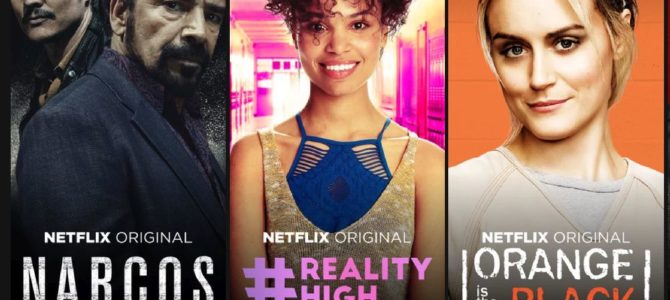
Every year, TV dramas slide deeper into a storytelling rut as deep as it is dark. Just click through the most popular titles on Netflix and the trope is apparent: the antihero. We’ve had “Breaking Bad,” “Mad Men,” “Dexter,” “How to Get Away with Murder,” “House of Cards,” “Game of Thrones,” “Ozark,” and those are just off the top of my head. There are plenty of corrupt cop dramas out there, and more comic book antiheroes are coming down the pike.
TVTropes put it well: “As the struggling, imperfect protagonist begins to gain more respect and sympathy than the impressive-but-impossible-to-relate-to invincible superhero, ‘anti’ heroes have come to be admired as a perfectly valid type of hero in their own right.”
Yes, Superman and Wonder Woman as characters separated from their plots are terribly boring for being too perfect, too idealistic and therefore unrelatable. But the obsession with angsty antiheroes (I prefer “anti-protagonists,” but that’s a mouthful) is weighing down TV drama. This is especially true since many belonging to the archetype are far more morally corrupt than “struggling” and “imperfect” (heck, Frank Underwood is a straight-up villain). I don’t say this out of frustration for the lack of stories with happy endings or a more explicit and simplistic morality. Descriptive stories are relatable; they stick with us, as Leslie Loftis has pointed out.
But at some point, TV drama has gone from introducing a few intriguingly dark protagonists that stand apart from the rest of TV’s “good” guys to ubiquitous application of the archetype. Did Western audiences cease to be interested in protagonists that, despite their deep flaws, end up doing the right thing? If we’re to take this ongoing trend as evidence of consumer bias, millions of viewers are no longer as interested in watching characters take the high road because they find the gutter much more fascinating.
Antiheroes Make Evil More Appealing
I’ll grant that “antiheroism” is a spectrum, ranging from almost-hero to practically villain. But as the name implies, the antihero often leaves much less room for goodness to shine and actually works to dilute its opposite. That may seem redundant, but as Loftis discussed in an interview with Stacy Washington, modern stories often sanitize and sympathetically portray the would-be villain, and in so doing, “evil is neutered.”
“Well, the bad witch isn’t so bad, after all,” we think. This is all part and parcel of the fictions in which we find antiheroes, and the neutering of evil happens on the hero side as well as the villain’s. It’s as if by refusing to bottle up evil in an archetypal baddie, all that darkness seeps like ink onto the pages of would-be heroes, rendering them antiheroes instead. It appears on the one hand that we’ve scrubbed out some of the evil from the baddie spectrum, but in much of today’s drama, that evil is just rebalanced across the show’s or movie’s characters.
The result is a tremendously dark and nihilistic world where no one is particularly good and no one is particularly bad. Everyone is just out for himself and what matters to him personally. Events and characters perpetually oscillate between bad and worse. The lack of catharsis, or perhaps an inkling of moral resolution at the end of a story arc, tells us that while these stories may be addictive, they’re not necessarily good.
Empathy for Antiheros Can Lead to Moral Compromises
Darkness, grit, and gore is no small attraction in entertainment, even when we do acknowledge baddies like murderous drug lords for what they are, and even when the protagonist is a hero, not an antihero (“Luke Cage” or “Luther,” for instance). It is fair to say that “light shines brightest in the darkness” with a fairly intact hero-villain dynamic, but the amount of dark grit we consume outside that framework should disturb us.
One might argue that, “Life is dark, and we don’t need a moral protagonist anyway to see what’s right and wrong. We’re adults.” Yet the influence is inescapable. We don’t watch TV at the front of a lecture hall, our moral compass ready in the palm of our hands. We veg out. We take it in.
You may not believe it influences your morality (I contend that it does), but you cannot deny it influences your mood. You know you’ve consumed too much dark antihero drama when you snap at your spouse and go to bed moody, irritable, or on edge, or your own life fantasies turn increasingly dark. Garbage in, garbage out, as they say.
In any case, chronic binge-watching of antihero stories will affect your perception of the world, because one of the marks of a captivating story is its ability to draw in viewers to empathize with the protagonists. It starts with empathy, compounded by addictive plots that keep you “hooked.” As Matthew Christman wrote in Current Affairs, “Television shows are, even more than films, advertisements for themselves.” That’s why we binge watch.
So now you’re empathizing with the antihero episode after episode, learning his excuses, his rationale, his desperately narrow choices, leaning into them for hour after hour. Don’t tell me that’s not going to impact how you think. One easily slides from “Selling drugs is bad” to “Selling drugs is bad, but he’s trying to help his family,” and “Murder is wrong” to “Murder is wrong, but at least he’s killing bad guys,” or even, “Yeah he’s a murderer, but childhood trauma made him that way.” The story has no relation to absolute right and wrong, but is merely a collection of heartbreaking backstories and a series of tradeoffs leading to desirable outcomes for some and bitter ends for others.
The End Thereof Is an Increased Penchant for Relativism
That’s the core problem with antiheros. It’s not that they’re descriptive instead of prescriptive or idealistic—you can describe someone like Don Draper without romanticizing him. Rather, the term “antihero” describes the moral aspect of the character.
We recognize an inherently moral framework when we identify Dexter or Walter White or whomever as an “antihero.” Antiheroes and their dark, gritty settings suck the life out of the viewer and don’t replace it with nearly enough of anything nourishing, wholesome, just, or hopeful. The antihero is an antihero because he lacks redeeming qualities and receives sympathy through his bad choices as much as in spite of them.
He always has an excuse, or an understandable chip on his shoulder, a trauma from his past, a charisma, a deeper self shrouded in mystery. He leaves us feeling weighed down but somehow empty, when we should walk away from “veg time” feeling less burdened, or at least ruminating on some deeper significance than “life sucks and then you die.” “But the plot is so good,” you say, “and the characters are so intriguing.” And that’s why you keep watching.
None of this is to say that there isn’t merit in uncovering motives for wrong choices that we can understand or identify with, or acknowledging there’s a part of us, however small, that says we’d do something similar in his situation. Ours is a complicated, fallen world, and we’d do well not to oversimplify it.
But the point of fiction isn’t to give us an exact reflection of our world. We have documentaries for that. It’s to tell a story, and it always has a moral aspect. If we efface the archetypal moral protagonist and antagonist, or if we torture them to the point where we must squint to see the distinction between the two, we couch ourselves ever deeper in amorality, such that when the right decision calls in real life, we might find it harder to rise to the occasion.









